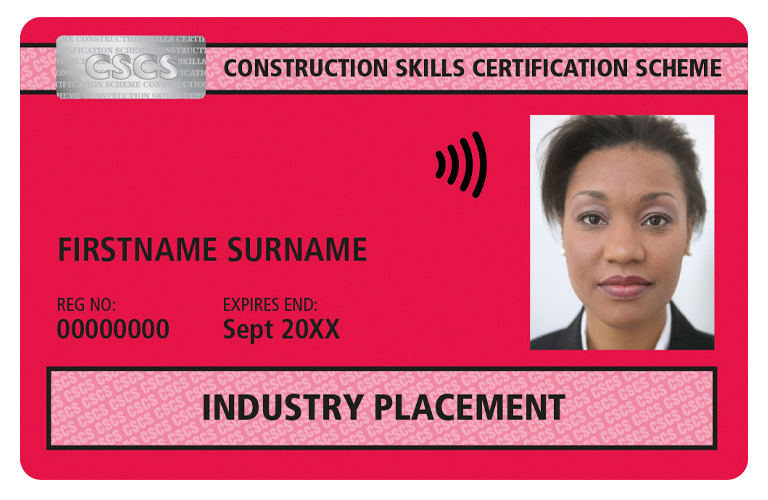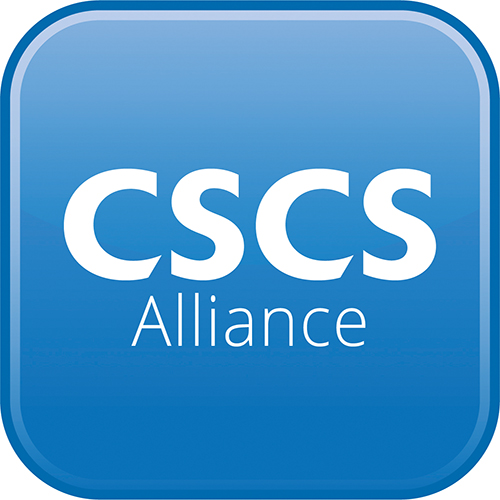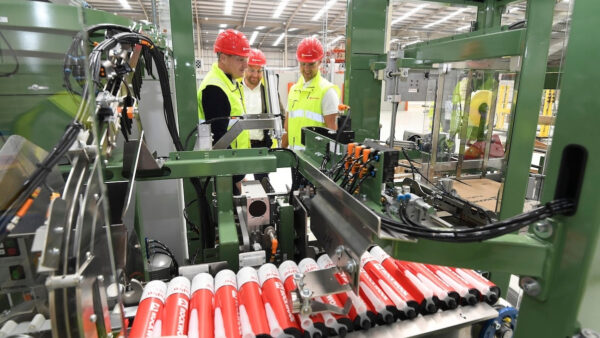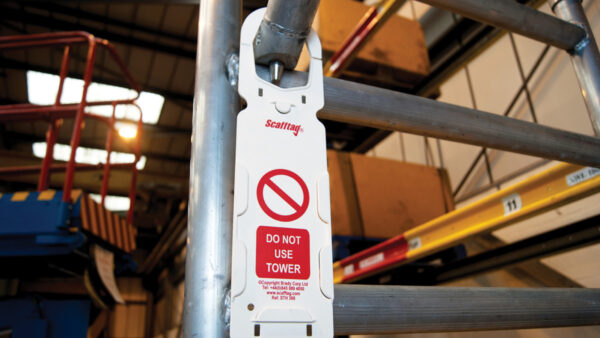
The CSCS Alliance – which brings 38 different skills certification bodies together – has now officially launched. CSCS Alliance chair Jay Parmar tells CM how the alliance was formed and how it aims to boost standards and improve safety across the industry.
Most people in the construction industry will be familiar with Construction Skills Certification Scheme (CSCS) cards. But fewer probably realise that 38 different certifying bodies contribute to the scheme. Collectively, those 38 organisations represent over 2.1 million skilled workers in the construction industry. The cards displaying the CSCS logo provide assurance that those workers are qualified to do their jobs on site.
Dealing with such a huge number of people and qualifications has the potential to create a great deal of complexity, particularly when it comes to checking and verifying workers’ qualifications and training.
That’s why, in 2020, the organisations joined together to form the CSCS Alliance. Launched in the midst of the Covid-19 pandemic, the alliance’s official launch only came in November 2022. But in that short time, it has achieved a great deal.
CSCS Alliance chair Jay Parmar, who is also CEO of the JIB, which operates the Electrotechnical Certification Scheme, explains why the alliance was formed. He says: “What we recognised is that pooling our resources, knowledge and ideas together under the banner of the CSCS Alliance is really powerful. It helps to strengthen and support the industry in a more positive and impactful manner.”
Established brand
While CSCS is just one of the 38 schemes, it has the largest number of cards (1.1 million) and is a well-established brand, which is why the alliance is named after it, Parmar explains.
He adds: “The shared vision is all about continuing to shine a bright light on the benefits of using a trained and qualified workforce in construction. We want to provide assurance that an individual’s skills, training and qualifications have been fully certified and verified. By verifying the workforce are appropriately qualified the CSCS Alliance is playing its part in raising standards and safety in construction and the built environment.”

To ensure that the voice of all partner organisations is heard, the CSCS Alliance hosts a forum, which Parmar chairs. “We have a steering group that looks at the governance and the strategic direction of travel. Underneath that, there are specialist groups, such as the development of the CSCS Smart Check app, which has helped to revolutionise the way in which 2.1 million workers’ skills, qualification and knowledge are checked,” he says.
Achievements
Although it’s only two years since the alliance was founded, it has already scored some major successes.
First among those, in 2021, was the creation of an Industry Placement card. The alliance came together to find a way to allow T-Level students to participate in extended work placements on site. At the time, no appropriate CSCS card was available to them. After a consultation, the alliance introduced the new Industry Placement card, making it easier for T-Level learners to access sites and start developing their practical and technical skills.
“That these learners couldn’t gain access to sites clearly wasn’t acceptable. The routes that these individuals take into construction are crucial for our shared ambition around things like low-carbon technologies, the net zero agenda, and ensuring that we have a skilled, competent workforce in the future,” says Parmar.
“The alliance responded swiftly, and I am really proud that we came together to launch the Industry Placement Card, it is a great example of the industry working together to remove barriers to entry and move the industry a step closer to achieving a fully trained and qualified workforce.”
Second, and just as notable, was the creation of the CSCS Smart Check app. The app allows 2.1 million cards in the UK construction industry that display the CSCS logo to be verified with a single app.
Working in silos
The development process was surprisingly rapid, with the alliance taking on the task last year with the help of an IT consultant before its launch in April 2022. The aim was to make checking cards quicker, easier and available to sites of all sizes.
Parmar explains: “The 38 card schemes were all working in silos to develop their own technologies around how people can access the physical and virtual card solutions. That made it complex for the end user (site managers) to check CSCS cards, often they would be expected to understand several different systems for checking cards which just wasn’t helpful. In some cases, that became an excuse not to check.”
The free app now means that sites of all sizes have a simple way to check training and qualifications, which Parmar believes will help to enhance building quality and safety.
“The feedback has been really positive. It is now simpler for industry to meet their compliance requirements. The app forms part of the industry’s response to the findings of the Dame Judith Hackitt review. It ensures people are suitably qualified, have the right training and experience for the role they are doing on site and, crucially, the information held by the cards can be accessed by sites of all sizes to improve building quality and safety,” he says.
Future priorities
“We’re not short of ambition,” says Parmar, when asked about his priorities for the alliance in the future. He cites the Building Safety Act as an important pillar that it is focusing on.
“We have a critical role to play in ensuring that the principles which underpin the act and the concepts such as the ‘golden thread’ of information, which includes the verification of a worker’s training and qualifications, gets delivered. This is particularly important when it comes to the new fire safety training and the introduction of continuous professional development (CPD), all of which needs to be displayed on the CSCS cards and validated at the site.”
He concludes: “There’s a lot of complexity behind the scenes but our philosophy is: let’s keep things as simple and easy as we can for users and the industry. Where we have done that; the industry has told us it is making a positive difference and supporting the shared vision of delivering safer, greener and high quality buildings.”
Jay Parmar is chair of the CSCS Alliance.












